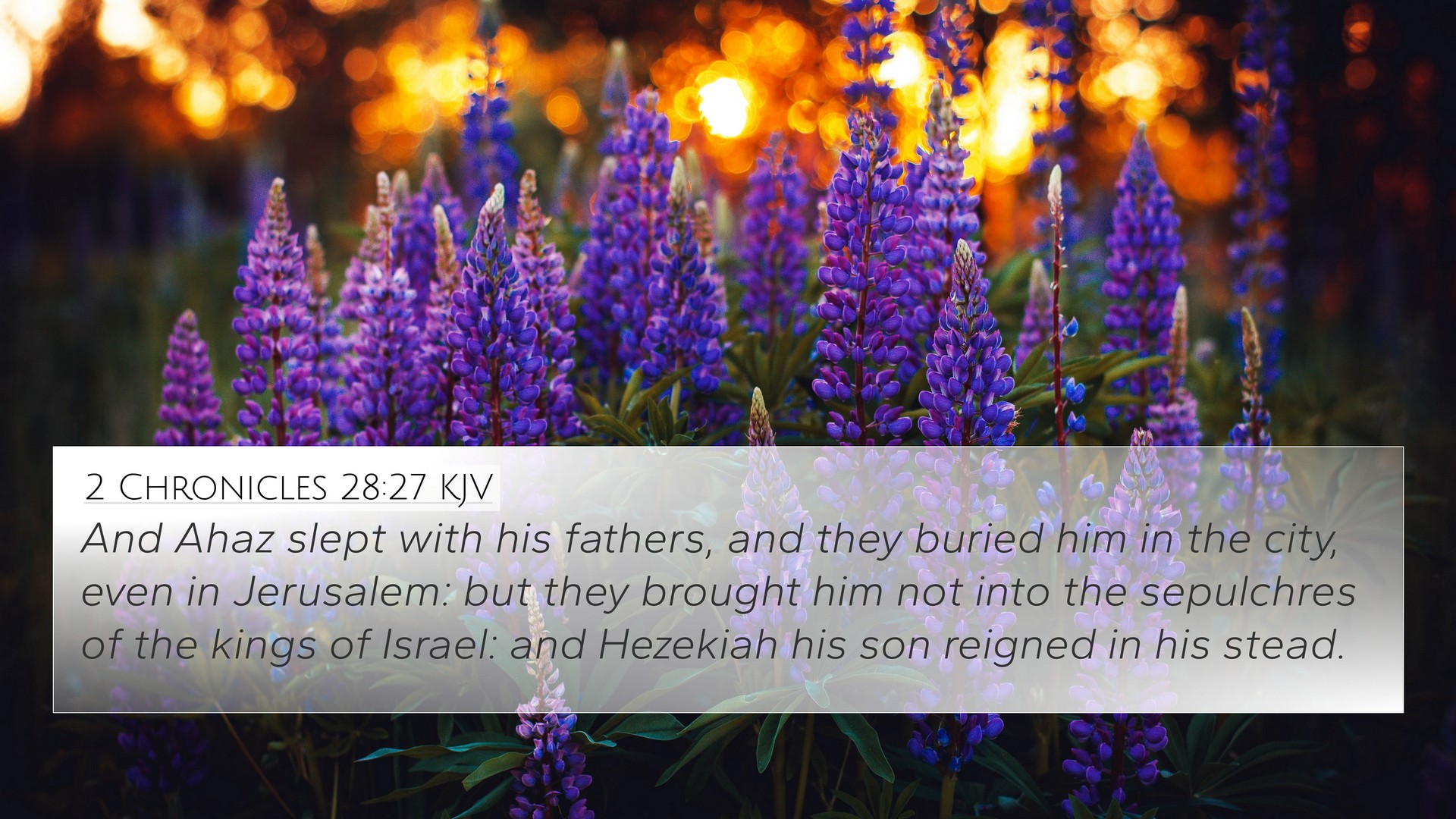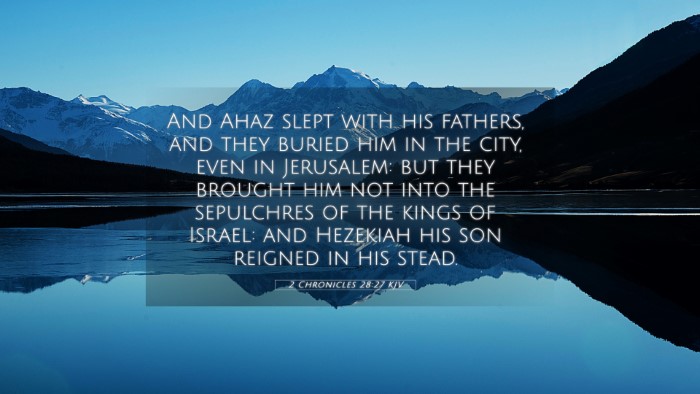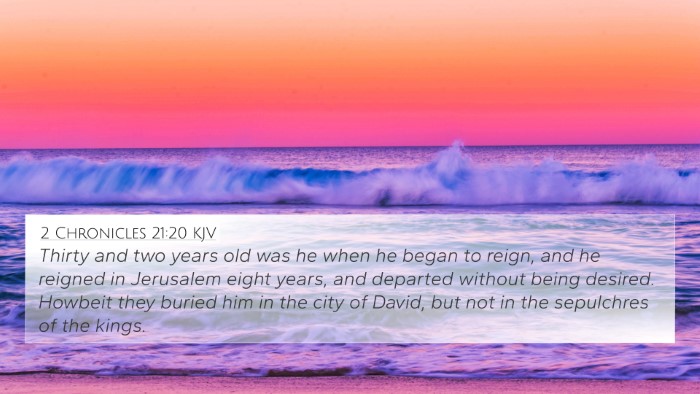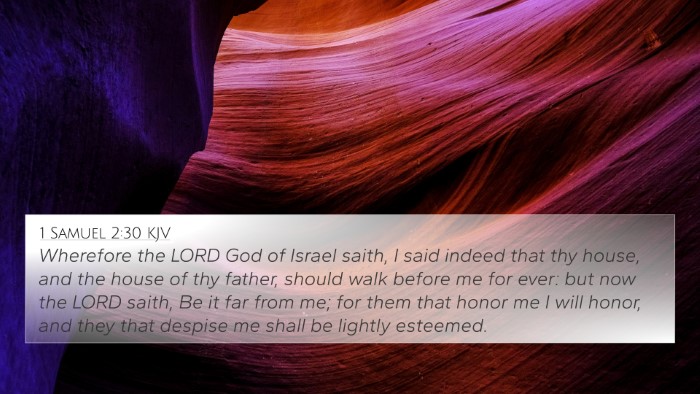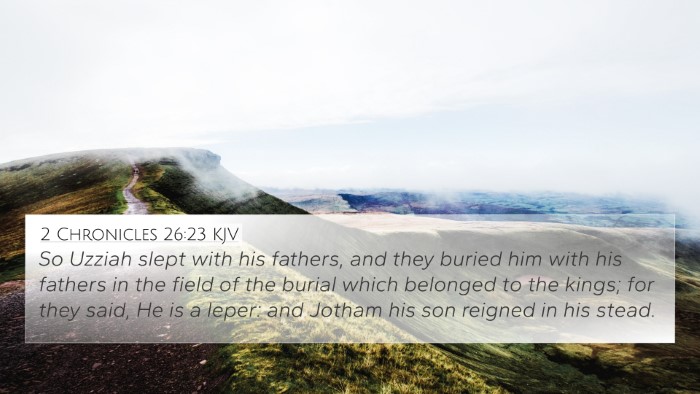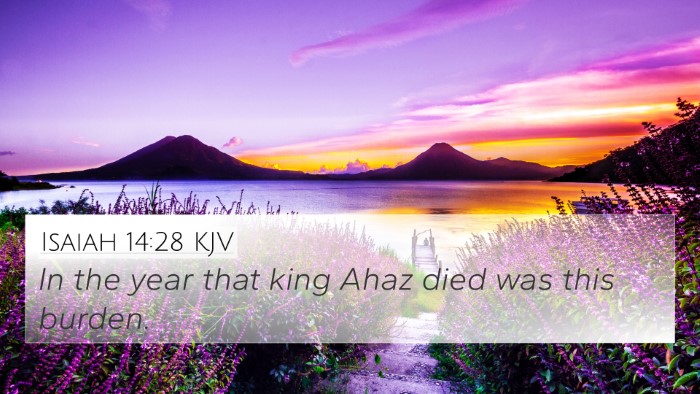Summary and Interpretation of 2 Chronicles 28:27
Bible Verse: 2 Chronicles 28:27
Verse Text: "And Ahaz slept with his fathers, and they buried him in the city, even in Jerusalem: but they brought him not into the sepulchres of the kings of Israel: and Hezekiah his son reigned in his stead."
Overview of 2 Chronicles 28:27
This verse marks the conclusion of the reign of Ahaz, the king of Judah. Following his death, he is not honored with a burial alongside the kings of Israel, highlighting a lack of respect due to his notorious reign characterized by idolatry and abandonment of Yahweh. His son Hezekiah takes the throne, which signals a transition to a period of reform and restoration.
Commentary Insights
Matthew Henry's Commentary
Henry emphasizes the dishonor attached to Ahaz's burial. He asserts that Ahaz's wickedness disqualified him from being buried in the royal tombs, symbolizing the broader consequences of living in rebellion against God. His reign is marked by idolatry and unjust alliances, which led to misfortunes for Judah. The transition to Hezekiah represents divine mercy as the nation shifts towards a leader who would restore true worship.
Albert Barnes' Notes on the Bible
Barnes notes the significance of the burial practices in ancient Israel, pointing out that being denied a burial with the kings reflects how Ahaz’s actions were viewed by his contemporaries and by God. This avoidance conveys a message about the repercussions of sin, particularly in leadership. Furthermore, Barnes highlights Hezekiah's notable reforms that would follow, contrasting the two kings and demonstrating a pivotal change in Judah's spiritual direction.
Adam Clarke's Commentary
Clarke elaborates on the implications of Ahaz's reign, indicating that the disrespect surrounding his burial signifies God’s judgment on his idolatrous practices. He discusses the reforms initiated by Hezekiah, framing them as a fulfillment of God's promise to provide a righteous leader after a period of depravity. Hezekiah's ascension is presented as a corrective measure against the backdrop of his father's failures.
Biblical Cross-References
- 2 Kings 16:20: Indicates the death of Ahaz and the manner of his burial.
- Isaiah 7:1-16: Warns of impending judgment during Ahaz's reign, showing the prophecy's contextual relevance.
- 2 Chronicles 29:1-36: Details Hezekiah’s reign and reforms, creating a contrast with his father's ways.
- 2 Chronicles 24:1-27: Highlights the importance of righteous leadership in Judah, similar to Hezekiah's role.
- 2 Kings 18:1-12: Discusses Hezekiah’s faithfulness compared to Ahaz's disobedience.
- Leviticus 10:1-3: Illustrates God's holiness and the consequences of defilement, akin to Ahaz’s reign.
- Ezekiel 18:30: Calls for repentance and a change in ways, reflecting the need that Hezekiah recognized.
Thematic Connections and Applications
The narrative of Ahaz and Hezekiah serves as a poignant reminder of the spiritual ramifications of leadership and the importance of pursuing God’s path. The dishonor reflected through Ahaz's burial becomes a practical teaching point about the consequences of sin and the need for reform. Through Hezekiah's eventual reign, there's an invitation to reflect on the transformative power of repentance and righteous leadership.
Connection Between Bible Verses
Understanding 2 Chronicles 28:27 in relation to other Scriptures aids in grasping the model of leadership and divine justice:
- Proverbs 14:34: “Righteousness exalts a nation, but sin is a reproach to any people,” which resonates with the consequences faced by Judah under Ahaz.
- Jeremiah 22:17: Critiques those who misuse their power, reflecting Ahaz’s actions.
- Psalms 89:30-32: Reminds of God’s covenant with David, framing the importance of faithfulness in leadership.
Using Cross-References in Study
Utilizing cross-references aids in deeper interpretation and enriches one's understanding of scriptural themes:
- Tools for Bible Cross-Referencing: Various concordances and study guides can enhance research.
- Comparative Bible Verse Analysis: Involves examining the thematic links between different texts to understand overarching messages.
Conclusion
2 Chronicles 28:27 underscores the tension between failure and reform, illustrating the spiritual trajectory of Judah under Ahaz and Hezekiah. By studying this verse and utilizing cross-referencing techniques, believers can gain profound insights into the nature of leadership and the importance of aligning with God’s will.
